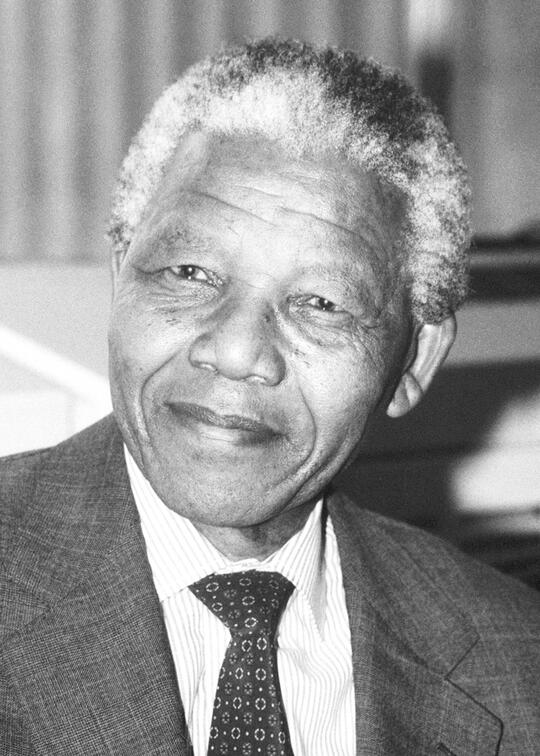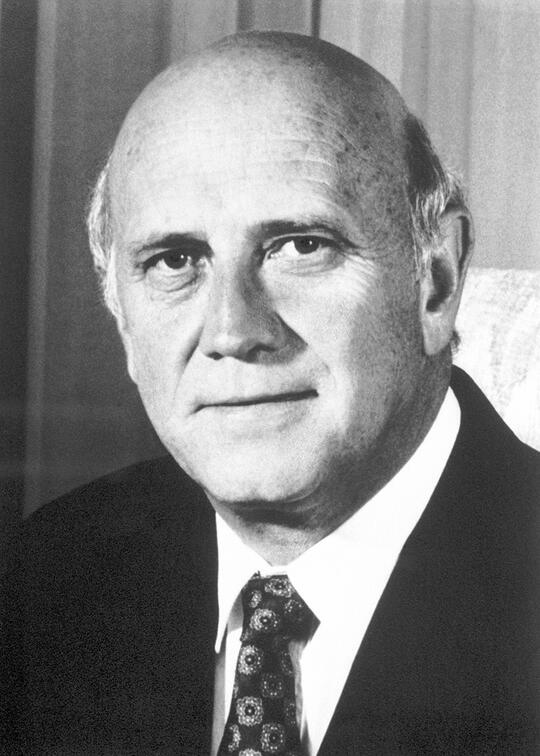1993
Nelson Mandela
F.W. de Klerk
for their work for the peaceful termination of the apartheid regime, and for laying the foundations for a new democratic South Africa

Nelson Mandela (1918 - 2013)
South Africa
Africa's Greatest Freedom Symbol
Son of a chief, Nelson Mandela studied law and became one of South Africa's first black lawyers. Early in the 1950s he was elected leader of the youth wing of the ANC (African National Congress) liberation movement. When the country's white minority government prohibited the ANC in 1960, Mandela became convinced that armed struggle was inevitable. Inspired by the guerrilla wars in Algeria and Cuba, he organized a military underground movement that engaged in sabotage. In 1962 he was arrested and sentenced to life imprisonment for high treason and conspiracy against the state. From 1964 to 1982 he was confined to the notorious prison island Robben Island, together with several other resistance leaders. He was then moved to prison on the mainland until his release in 1990. During his imprisonment, Mandela became a rallying point for South Africa's oppressed, and the world's most famous political prisoner. Nelson Mandela shared the Peace Prize with the man who had released him, President Frederik Willem de Klerk, because they had agreed on a peaceful transition to majority rule.
F.W. de Klerk (1936 - 2021)
South Africa